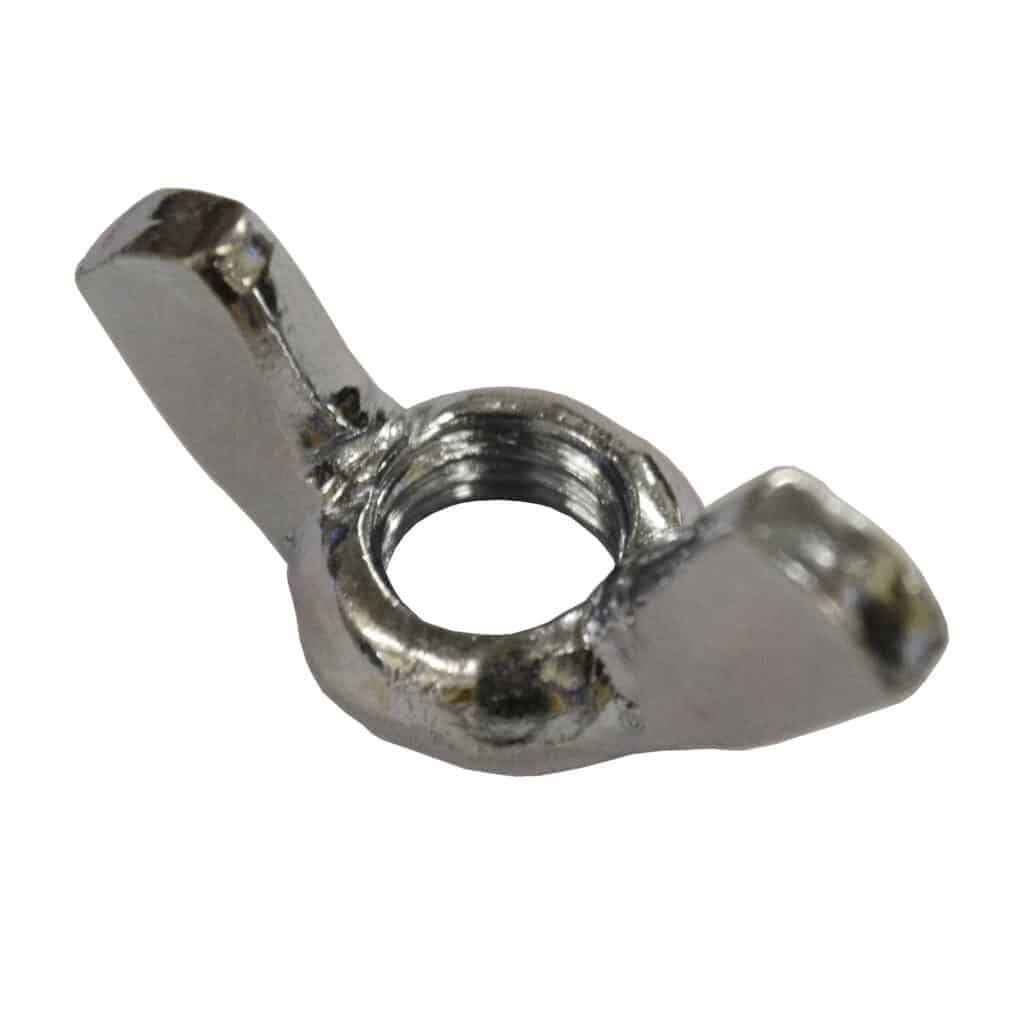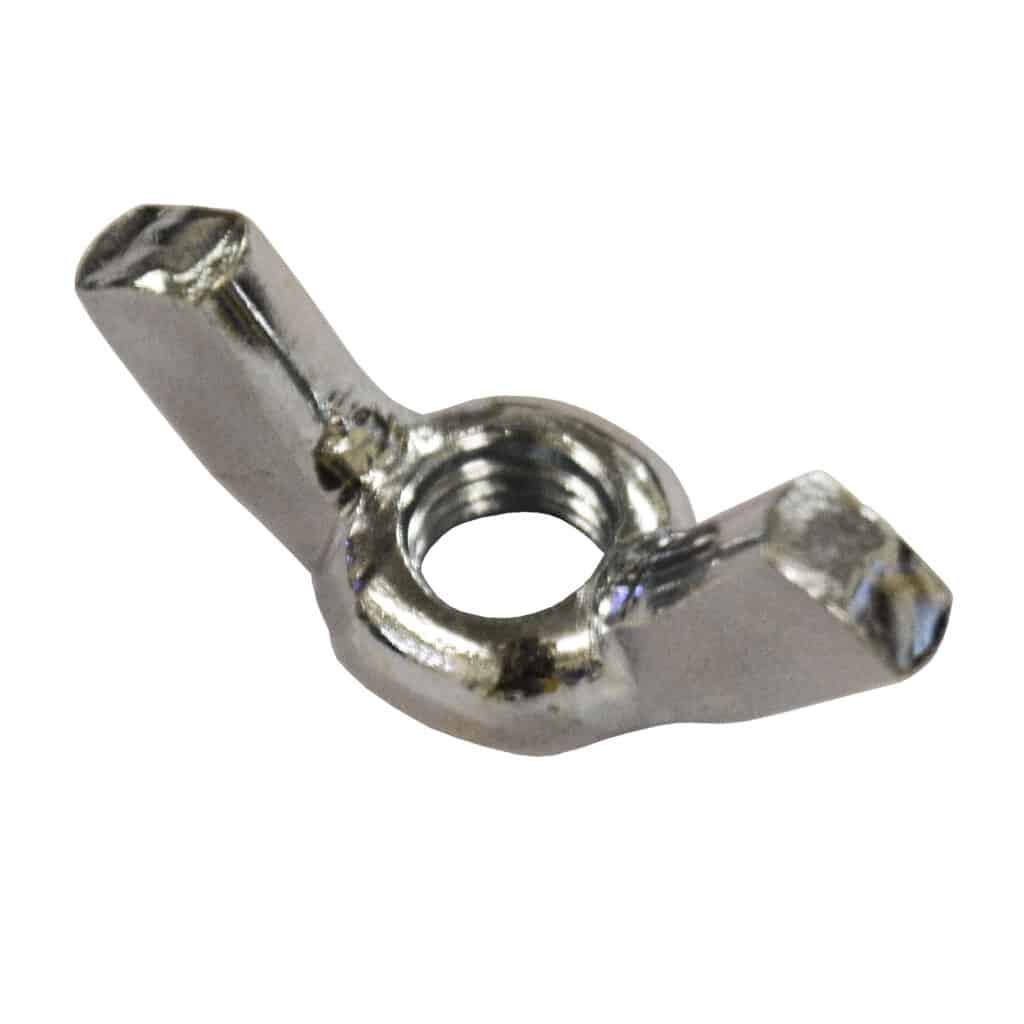- Massive Range
- FREE UK Delivery
- Rapid Dispatch
- Massive Range
- FREE UK Delivery
- Rapid Dispatch
- Massive Range
- FREE UK Delivery
- Rapid Dispatch
Menu
£1.45 – £10.35 inc VAT

Are you in need of a reliable and long-lasting steel penny washer? Look no further than Speciality Metals! Our M5 repair steel penny washers are made from top-quality stainless steel, specifically the 304 grade. This ensures maximum durability and versatility for any job you may need it for. Not to mention, our steel penny washers require low maintenance and have hygienic properties that make them perfect for a range of settings. Plus, they’re corrosion-resistant, meaning you can count on them to last for years to come. So why wait? Choose Speciality Metals for all your steel penny washer needs!
These top quality M5 steel penny washer are for metric bolts and screws. They are supplied straight from Warrington, UK.
Apart from our extensive range of penny washers, Speciality Metals stocks a variety of both standard fasteners and specialist fasteners, including both steel and stainless steel fasteners, nuts and bolts, screws and steel washers.
We ensure that we offer a comprehensive range which meets the needs and requirements of each and every one of our customers, whether you are looking for standard washers or something a little more unusual.
We pride ourselves on offering a wide range of quality products to suit the needs of a variety of industries at Specialty Metals. Our M5 Repair Steel Penny Washers are made of 304-grade stainless steel, making them durable and versatile. Whether you’re in the food manufacturing industry, healthcare or construction, these washers offer hygienic properties and low maintenance. Furthermore, they are corrosion-resistant and secure, ensuring that your investment will last. Our products not only deliver quality, but also provide access to our team of experts who are always available to answer any questions you have.
Among austenitic stainless steels, type 304 is the most versatile and widely used due to its chromium-nickel content and low carbon content. These alloys are all modified forms of the 18% chromium, 8% nickel austenitic alloy. Type 304 stainless steel is great for using in many DIY projects as it is resistant to oxidation and corrosion.
Penny washer is one of the most common washers used over the world.
Key product details:
Speciality Metals is known to be the United Kingdom’s best up-and-coming small-quantity metal company.
Furthermore we stock a vast range of plain wire mesh and perforated metal options that compliment our sheet metal range perfectly.
Over 50,000 customers of Specialty Metals are provided with fast, friendly customer service every year. We’re the place to try when you need metal of any shape and size. We’re based in Warrington, UK. We pride ourselves on our rapid turnaround and a large range of options.
Yes, you can use stainless steel repair penny washers in conjunction with other types of washers in certain applications to achieve specific goals. Combining different washer types can offer advantages in terms of load distribution, insulation, locking and more. Here are a few scenarios where using stainless steel repair penny washers with other types of washers can be beneficial:
Locking and Anti-Vibration: Pairing stainless steel repair penny washers with locking washers, such as split washers or serrated washers, can help prevent fastener loosening due to vibration or dynamic loads. The penny washer provides load distribution, while the locking washer adds resistance against rotation.
Insulation and Isolation: Using insulating washers, often made from plastic or rubber, in combination with stainless steel repair penny washers can provide electrical insulation and prevent galvanic corrosion between dissimilar metals.
Increased Load Distribution: By using stainless steel flat washers under repair penny washers, you can further distribute the load from fasteners over a larger area. This can be useful when the surface being fastened requires additional protection.
Spring Washers: In some applications, combining stainless steel repair penny washers with spring washers (also known as Belleville washers) can provide controlled flexibility and help maintain the preload on fasteners under varying conditions.
Load-Specific Configurations: Depending on the load distribution and stress requirements of a particular application, combining washers of different sizes and shapes can help tailor the assembly to those needs.
Stainless steel repair penny washers may not be the ideal choice for aerospace applications due to the stringent requirements and high standards of the aerospace industry. Aerospace applications demand components that meet exceptional levels of reliability, precision and performance, often involving extreme conditions and safety considerations. While stainless steel offers corrosion resistance and durability, aerospace applications require specialised materials and components that have undergone rigorous testing and certifications.
Here are a few reasons why stainless steel repair penny washers might not be suitable for aerospace applications:
Material Specifications: Aerospace components are often required to meet very specific material specifications and standards. These specifications include factors like strength, weight, thermal resistance and resistance to extreme environments, which might not be fully met by standard stainless steel repair penny washers.
Precision and Tolerance: Aerospace components need to be manufactured to very tight tolerances and precision to ensure proper fit, alignment and performance. Repair penny washers might not provide the level of precision required in aerospace applications.
Safety and Certification: Aerospace components must meet strict safety and reliability standards. They typically undergo rigorous testing, including vibration, fatigue and extreme condition simulations, to ensure they can withstand the demands of flight.
Galvanic Compatibility: Aerospace assemblies often involve intricate combinations of materials. Galvanic compatibility between dissimilar metals is a critical consideration to prevent corrosion in aerospace components.
Weight Reduction: Aerospace applications prioritise weight reduction for fuel efficiency and performance. Specialised lightweight materials are often preferred over standard stainless steel for components.
Temperature and Thermal Cycling: Aerospace environments involve extreme temperature variations and thermal cycling. Materials used must exhibit consistent performance under these conditions.
Yes, stainless steel repair penny washers can be used in certain electrical applications, particularly those that require corrosion resistance and reliable electrical connections. Stainless steel is a good choice for electrical applications due to its non-corrosive properties and ability to conduct electricity. However, there are a few considerations to keep in mind:
Corrosion Resistance: Stainless steel’s corrosion resistance is valuable in electrical applications, especially in environments where moisture, humidity or chemical exposure could cause corrosion and compromise the electrical connection.
Galvanic Compatibility: Consider the materials you are connecting with the stainless steel washers. In electrical connections involving dissimilar metals, galvanic compatibility is crucial to prevent corrosion caused by the interaction of different metals.
Electrical Conductivity: While stainless steel is a conductor, it’s not as conductive as some other metals like copper. Depending on the application, you might need to evaluate whether the conductivity of stainless steel is sufficient.
Insulating Washers: For specific electrical applications, insulating washers made from materials like plastic, rubber or fiber might be more appropriate. These washers prevent electrical contact between different components or provide electrical insulation.
Size and Fit: Ensure that the size and dimensions of the repair penny washers are suitable for the electrical components you are connecting. Proper sizing helps achieve effective load distribution and electrical connectivity.
Vibration and Movement: If the electrical components will be exposed to vibration or movement, consider using washers that offer locking or anti-vibration features to maintain secure connections.
Professional Advice: If you’re unsure about the suitability of stainless steel repair penny washers for a particular electrical application, consulting with electrical engineers or professionals in the field is recommended.
Corrosion Resistance: Stainless steel is known for its excellent corrosion resistance, making it suitable for use in environments with high humidity, exposure to moisture or harsh chemicals. This corrosion resistance ensures that the washers maintain their structural integrity over time.
Durability: Stainless steel is a durable material that can withstand mechanical stress, temperature variations and wear without degrading in quality.
Longevity: Stainless steel’s resistance to corrosion and durability contribute to its longevity. Stainless steel repair penny washers can maintain their performance and appearance over a long period of time.
Load Distribution: Repair penny washers are designed to distribute the load of fasteners over a larger surface area. This helps prevent damage to the material being fastened and ensures even load distribution.
Electrical Conductivity: Stainless steel is a conductor of electricity, making it suitable for applications where electrical connectivity is required.
Aesthetic Appeal: Stainless steel has a clean and attractive appearance that can enhance the visual appeal of assemblies or structures.
Versatility: Stainless steel repair penny washers can be used in a variety of applications, ranging from construction to automotive to electrical, due to their corrosion resistance and load distribution properties.
Resistance to Extreme Temperatures: Stainless steel can withstand a wide range of temperatures without losing its mechanical properties, making it suitable for applications exposed to varying temperatures.
Hygienic Properties: Stainless steel is non-porous and easy to clean, which makes it suitable for applications in industries where hygiene is important, such as food processing and healthcare.
Recyclability: Stainless steel is highly recyclable, contributing to sustainability efforts and reducing environmental impact.
Cost: Stainless steel can be more expensive than other materials, which might impact the overall cost of a project or assembly.
Hardness: Stainless steel is generally harder than some other materials like rubber or plastic, which might not be suitable for applications where a softer material is needed to prevent surface damage.
Conductivity: While stainless steel is a conductor of electricity, it’s not as conductive as materials like copper. In applications requiring high electrical conductivity, stainless steel might not be the best choice.
Weight: Stainless steel can be heavier than other materials, which could be a consideration in applications where weight is a critical factor, such as aerospace or lightweight structures.
Galvanic Compatibility: When in contact with certain metals, stainless steel can cause galvanic corrosion due to the potential difference in electrochemical properties. Proper material selection and insulation are necessary to prevent this.
Specialised Applications: In highly specialised industries or applications with unique requirements, there might be more suitable materials or washer designs available.
Thermal Conductivity: Stainless steel has lower thermal conductivity compared to some other metals, which might impact its performance in applications involving heat transfer.
Magnetic Properties: Some stainless steel alloys are slightly magnetic, which could be a concern in applications where magnetism needs to be avoided.
Material Compatibility: Stainless steel repair penny washers might not be compatible with all materials and environments. In certain chemical or highly corrosive environments, alternative materials might be more suitable.
Design Limitations: The size and shape of repair penny washers might not always be ideal for specific applications, necessitating custom solutions or alternative washer types.
Check out our recent article ‘Penny Washers: What They Are and Why They’re Essential in DIY Projects‘ for a deeper dive into penny washers. Our goal for our blogs and help guides is to answer as many questions as possible to help to explain the possibilities of mesh to our customers.
We are also very proud of our ever expanding YouTube channel.
Contact us today if you have any questions at all. We are always really keen to help in any way that we can.
We are also very proud of our highly popular eBay store, check us out there too.
Thank you for checking out our product.


Speciality Metals
Unit 1, Farrell Street, Warrington,
Cheshire, WA1 2WW, United Kingdom
Quick Links
Payment Options
